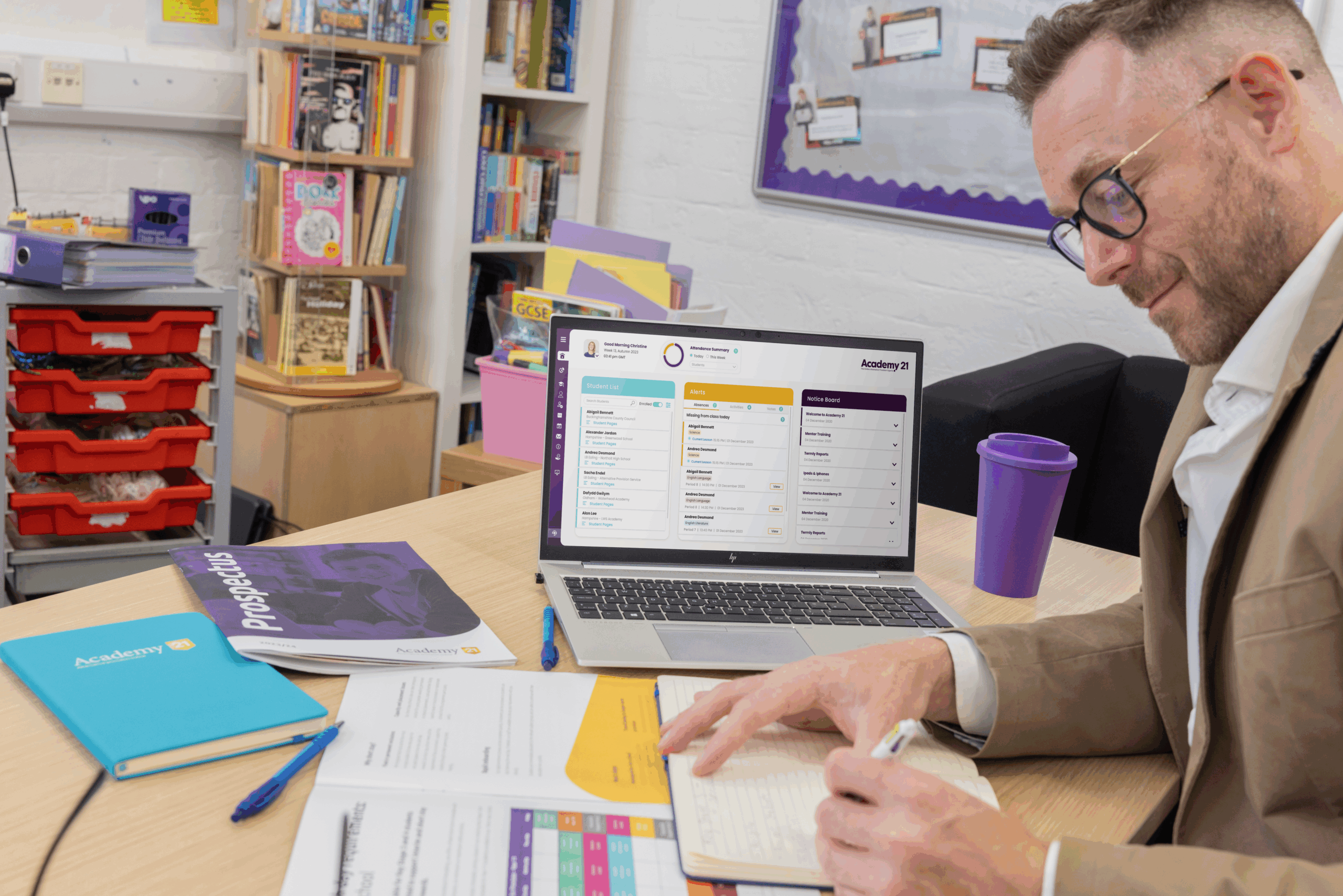How to track student progress effectively

Education is a journey, and every journey is marked by progress. Tracking student progress allows teachers to identify strengths, areas for improvement, and areas where students may have gaps in and need additional support. But progress tracking is far from just finding problems—it’s also about seeing growth, guiding students through challenges, and keeping them motivated as they advance in their education.
So, what does it take to track progress effectively? And how can we ensure we’re using those insights to inspire students to continue learning and developing their skills?
What does student progress mean?
Student progress is the measurable improvement or development of a student over time. While academic achievement is often seen as the primary focus, progress encompasses a broader range of factors, such as skills development, personal growth, emotional wellbeing, and engagement with the learning process.
Student progress can be assessed through indicators such as understanding key concepts, mastering specific skills, and achieving academic targets. Ofsted defines progress as the extent to which pupils know more, remember more, and can do more of what was intended in the curriculum.
Additionally, Ofsted highlights the significance of considering each student’s starting point. The School Inspection Handbook notes that “students make substantial and sustained progress from their identified and recorded starting points in their study programmes”.
For example, a student who begins with a lower level of knowledge should be tracked in a way that recognises their progress, rather than comparing them directly to others who may have started at a higher level. Considering each student’s journey rather than standardised measures is the foundation of the inclusion by design model that every school strives to implement.
Why is tracking student progress so important?
The most significant advantage is early intervention. When student progress is tracked regularly, it is easier to identify when a student faces challenges grasping certain content, developing specific skills, or whether they are dealing with broader issues such as disengagement or social and emotional concerns. Intervening early helps schools allocate appropriate support, often by employing alternative provision specialists who can onboard new students swiftly.
Tracking progress also allows teachers to adapt their approaches. As the Education Endowment Foundation (EEF) states, diagnostic assessments, such as hinge questions and low-stakes quizzes, provide teachers with immediate insights into students’ understanding. These assessments allow educators to be responsive to students’ needs, adjust their strategies, and provide valuable feedback.
According to another EEF study, giving students feedback (be it written, verbal, or through digital tools) significantly impacts their learning outcomes. Compared to their peers without such feedback, it leads to an average of seven months’ additional progress for primary school students and five months’ additional progress for secondary students.
Moreover, knowing their performance is being tracked can instil a sense of ownership in students. Having clear goals to work towards and seeing their results improving enhances their motivation and drives them to keep pushing forward.
Key elements of effective progress tracking
Effective progress tracking relies on a few key elements:
- Clear and specific goals: Educators should set measurable, achievable, and relevant goals aligned with the curriculum. Students should know exactly what they are working towards.
- Frequent monitoring: Tracking progress isn’t a one-time event. It should be a continuous process, with regular assessments—whether formal tests, quizzes, or other informal class activities.
- Actionable insights: Data and feedback must lead to concrete action. The purpose of progress tracking isn’t just to gather information, but to use it to adjust teaching, improve learning strategies, and offer support when needed.
- Holistic approach: Tracking should go beyond academic performance. It should also consider factors like student engagement, wellbeing, behaviour, and personal development, all of which influence a student’s overall progress.
How we track progress at Academy21
In a traditional classroom, even the most dedicated teachers can find it challenging to monitor every student’s engagement and progress closely. Large class sizes, varied lesson activities, and the everyday distractions of a busy school environment often mean that subtle shifts in a student’s understanding or participation can be harder to notice. As a result, teachers may rely on periodic tests or observations — useful tools, but ones that may not always capture the full depth of a student’s learning over time.
In contrast, online platforms like Academy21 make gathering and tracking detailed data on student performance much easier. Every interaction — from lesson participation to assessments and attendance — is recorded digitally, providing a real-time snapshot of each student’s learning journey. This creates an accurate, unbiased record that allows teachers to monitor progress with far more precision and consistency than traditional methods.
At Academy21, we take full advantage of this benefit by incorporating live assessments, attendance tracking, and performance feedback into our system. Here are some of the various features we use to track progress more effectively:
Real-time attendance monitoring
Student attendance is automatically recorded in every live online lesson. Our system captures entry into lessons and monitors presence throughout the session. After each lesson, a final update ensures that all attendance records are accurate and current. Regular attendance monitoring helps us spot patterns of disengagement early so we can work with schools to provide additional support if needed.
Continuous formative assessments
Our experienced teachers conduct formative assessments during each live, adaptive lesson by recording students’ effort, understanding, and interaction using a 1–5 scale. These assessments provide immediate insight into how well students engage with the content and where additional support may be needed.
Regular progress reporting
We provide half-term and full-term progress reports with an overview of each student’s performance. Reports include current working grades, target grades, predicted outcomes, and teacher comments. Our detailed reports help schools assess performance over time and make informed decisions about each student’s next step.
Easy access to progress data
Our work with schools and local authorities is truly collaborative and built on transparency. Each of our partners can access a Mentor Portal, which includes up-to-date information on each student’s attendance, engagement, and academic performance. This information can easily be shared with parents as well.
Adaptive teaching
We use adaptive teaching strategies, informed by real-time data, to meet each student’s needs. Plus, our proprietary InspiredAI technology analyses students’ responses in class activities to identify their strengths and areas for improvement. Based on this analysis, students receive automatically generated exercises tailored to their learning needs.
Specialist support
More important than having access to the real-time, accurate data is having the capability to act on it. Aside from our experienced teachers, Academy21 also has dedicated SEN professionals that can work with the school to offer tailored student support.
Lessons for broader educational settings
Although Academy21’s model is tailored for online settings, many principles can be applied to mainstream educational settings, too. To monitor understanding, teachers can introduce regular formative assessments, such as quizzes, class discussions, and interactive activities. Educators can adjust their teaching by gathering continuous feedback and offering more targeted interventions.
Schools can also consider using digital tools to centralise and analyse student progress data. Platforms that track attendance, grades, and feedback in one place allow teachers to quickly spot patterns and respond to them before they become larger issues.
Finally, schools need to adopt a holistic approach to progress tracking. While academic data is invaluable, monitoring a student’s emotional wellbeing, engagement, and personal development is just as important.
Seeing improvements one step at a time
Monitoring student progress and using that data to inform teaching practices is key to helping learners move forward. In alternative provision settings, where every milestone matters, tracking progress is even more critical.
At Academy21, we take performance and attendance monitoring seriously. We aim to collaborate closely with schools through a fully transparent approach to data sharing, ensuring we can collectively do what’s best for each student.
Real-time, clear, and actionable progress tracking underpins our commitment to delivering the best possible outcomes for every learner. Contact us below to learn more about how we monitor and support student progress.



